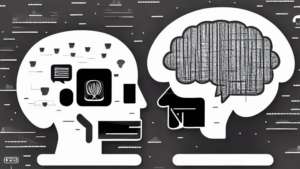In today’s fast-paced digital landscape, technical support teams face unprecedented challenges, especially remotely. As a senior technical support leader, fostering a ‘what if’ attitude amongst your team can be a game-changer. This mindset enhances problem-solving skills and cultivates emotional intelligence—a crucial asset for remote teams. Let’s explore the profound impact of the ‘what if’ approach and how it can revolutionise your remote technical support operations.
The Power of ‘What If’
At its core, the ‘what if’ mindset is about curiosity and innovation. It encourages team members to step beyond conventional thinking and explore alternative solutions. This approach can lead to more efficient resolutions and improved customer satisfaction in technical support, where issues can be complex and multifaceted.
The ‘what if’ attitude is not just about asking questions; it’s about challenging assumptions, exploring new possibilities, and pushing the boundaries of what’s possible. It’s a powerful tool that can transform how your team approaches problems and interacts with customers.
Remote Teams and the ‘What If’ Attitude
Maintaining a ‘what if’ attitude is particularly vital for remote support teams. Remote workers can easily fall into routines without face-to-face interactions and lose their creative edge. Encouraging ‘what if’ thinking can:
- Combat isolation: Promoting creative thinking can help team members feel more engaged and connected to their work and colleagues.
- Enhance collaboration: ‘What if’ scenarios often require input from multiple team members, fostering a collaborative environment despite physical distances.
- Improve adaptability: Remote work requires flexibility, and a ‘what if’ mindset helps teams more readily adapt to new challenges.
- Boost motivation: Engaging in creative problem-solving can reinvigorate team members, providing a sense of purpose and accomplishment.
- Facilitate knowledge sharing: The ‘what if’ approach encourages team members to share insights and experiences, creating a rich learning environment.
Emotional Intelligence and the ‘What If’ Approach
Emotional intelligence—the ability to understand and manage one’s own emotions and those of others—is crucial for remote support teams. The ‘what if’ attitude can significantly contribute to developing emotional intelligence in several ways:
- Empathy: By considering ‘what if’ scenarios, support agents can better understand and anticipate customer needs and frustrations.
- Self-awareness: Exploring ‘what if’ questions encourages team members to reflect on their problem-solving approaches and biases.
- Relationship management: A ‘what if’ mindset can help team members navigate complex interpersonal dynamics with customers and colleagues.
- Social awareness: Considering different ‘what if’ scenarios can enhance team members’ ability to read and respond to social cues, even in a virtual environment.
- Emotional regulation: Exploring ‘what if’ questions can help team members manage their emotions when faced with challenging situations.
Implementing the ‘What If’ Mindset
As a leader, you can foster this attitude within your remote team through several strategies:
- Regular brainstorming sessions: Host virtual meetings to explore ‘what if’ scenarios related to common support issues.
- Reward innovation: Recognise and celebrate team members who propose creative solutions or ask insightful ‘what if’ questions.
- Lead by example: Incorporate ‘what if’ thinking into your problem-solving and decision-making process.
- Create a safe space: Encourage team members to share their ‘what if’ ideas without fear of judgement or ridicule.
- Incorporate ‘what if’ scenarios in training: Hypothetical situations can help team members develop problem-solving skills and emotional intelligence.
- Establish ‘what if’ channels: Create dedicated communication channels where team members can share and discuss ‘what if’ ideas.
- Implement ‘what if’ exercises: Regularly challenge your team with ‘what if’ scenarios to keep their problem-solving skills sharp.
- Encourage cross-functional ‘what if’ thinking: Promote collaboration between different teams to bring fresh perspectives to technical support challenges.
Overcoming Challenges
Implementing a ‘what if’ mindset isn’t without its challenges. Some team members may resist change or feel uncomfortable with open-ended thinking. As a leader, it’s crucial to:
- Provide support: Offer guidance and reassurance to team members who struggle with this new approach.
- Balance structure and creativity: Ensure that the ‘what if’ attitude complements, rather than replaces, established procedures.
- Monitor outcomes: Regularly assess how the ‘what if’ approach impacts team performance and customer satisfaction.
- Address resistance: Be prepared to discuss openly with team members who are hesitant about adopting a ‘what if’ mindset.
- Manage time effectively: Ensure that ‘what if’ discussions don’t detract from core responsibilities.
Measuring Success
To gauge the effectiveness of the ‘what if’ approach in your remote technical support team, consider tracking the following metrics:
- Customer satisfaction scores: Monitor if creative solutions lead to improved customer experiences.
- Time to resolution: Assess whether ‘what if’ thinking is helping to solve issues more quickly.
- Employee engagement: Measure team morale and engagement levels to see if the ‘what if’ approach has a positive impact.
- Innovation metrics: Track the number and quality of new ideas generated by your team.
- Knowledge sharing indicators: Monitor your team’s frequency and depth of knowledge sharing.
Conclusion
Every groundbreaking solution starts with a simple question: “What if?”
Embracing a ‘what if’ mindset can transform your team, leading to more innovative solutions, improved emotional intelligence, and enhanced customer experiences. By fostering curiosity and encouraging creative thinking, you’ll build a more resilient, adaptable, and emotionally intelligent team—ready to tackle the unique challenges of remote support in today’s digital age.
The journey to implementing a ‘what if’ attitude is ongoing. Be patient, persistent, and open to the possibilities this mindset can bring to your team and organisation. As you continue to nurture this approach, you’ll likely find that your team becomes not just problem-solvers but true innovators in technical support.
By consistently applying the ‘what if’ mindset, your remote technical support team can stay ahead of the curve, delivering exceptional service and driving continuous improvement in an ever-evolving technological landscape.







